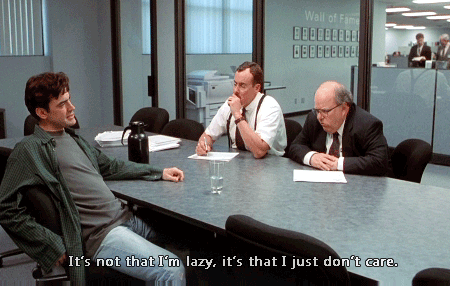Bosses value output and productivity; employees want a comfortable life. Clearly, there is a gap which can cause the company great harm. It’s nothing personal; slacking off is an occupational hazard of being human. No one can focus all of the time, which means they are going to lose concentration from time to time. Still, while you’re paying them, they should at least act as if they appear busy.
Leaders often struggle with slackers because success is teamwork-based. Without employees on your side, output and productivity levels will fall even more. With that in mind, here’s how not to be a sucker.
Check Their Workload
You look up and you see the same person chatting away in the conference room. Twenty minutes ago, the same employee was in the kitchen taking an early lunch. Before that, they went for an impromptu cigarette break. They are taking liberties and it needs to end, which is why you should check their workload. Usually, workers slack off either because they have nothing to do or don’t understand their tasks. To avoid a scene, ask them how the day is going and if they need any help because you’ve noticed they aren’t engaged. It’s a gentle reprimand and gives them an out.
Don’t Provide An Excuse
Employees are brilliant at coming up with excuses without the company offering them to them on a plate. What does that mean? It implies the facilities aren’t always on point and ready for them to use. For example, they need to log-in to their email account to correspond and follow up a lead, yet the server is down. Rather than do something different, they’ll blame the computer and plateau. Managed IT services or a dedicated team can eliminate their alibi so that they have to work. Any problems which occur are dealt with in a matter of minutes.
Break Up The Day
According to recent research, a typical employee is only productive for up to three hours a day. This will send shivers down your spine, but you should accept it. No one wants to push their staff too hard to the point where they are less efficient than usual. To embrace the findings, it’s essential to break the day up into manageable chunks. Start with challenging tasks in the morning as that is when the brain is at its peak. However, don’t let it drag for hours. Instead, put a break in between so they can recharge their batteries and come back refreshed. Do this throughout the day and they should spend their short time wisely.
Delegate
If they are lucky enough to have spare time, then you should fill it with work. But, don’t give them any old task because it’s disrespectful and a waste of both of your time. An alternative is to delegate with meaning and provide them with something senior to complete. The odds are the jump in difficulty and the impression it gives off will encourage them to work harder than normal.
You’ve done all of the above and they are still slackers. What can you do now? The answer is to call them out. After all, have they left you a choice?
